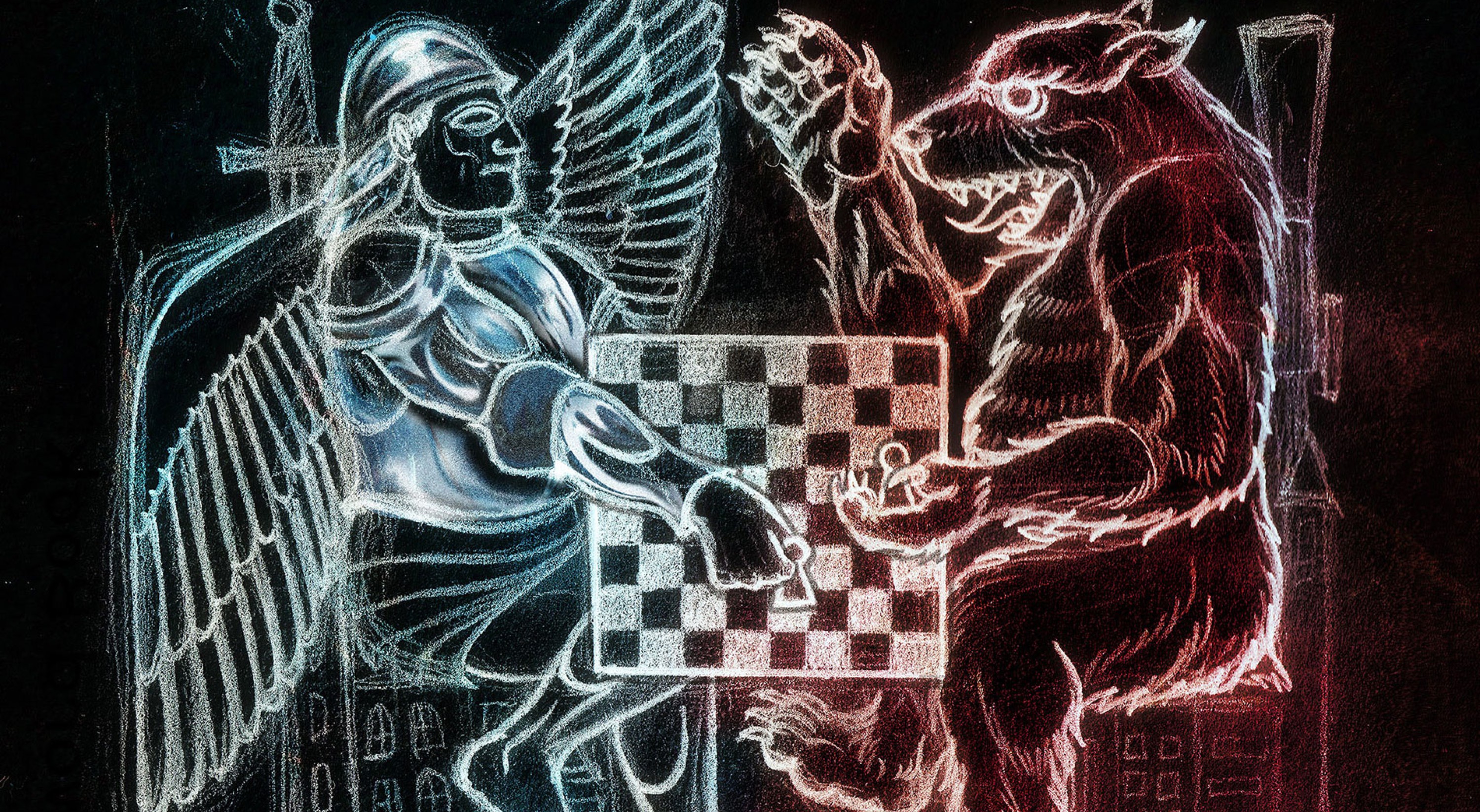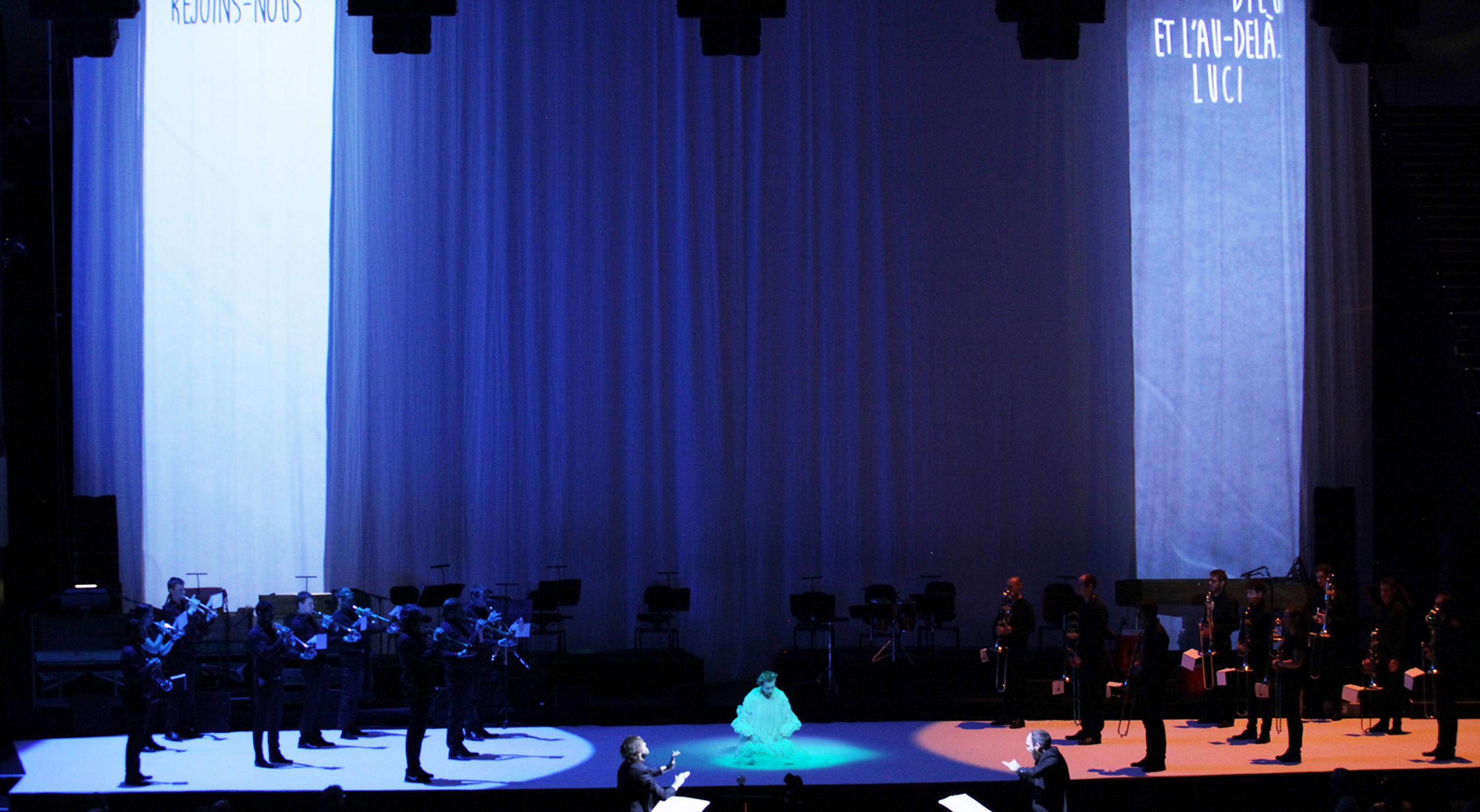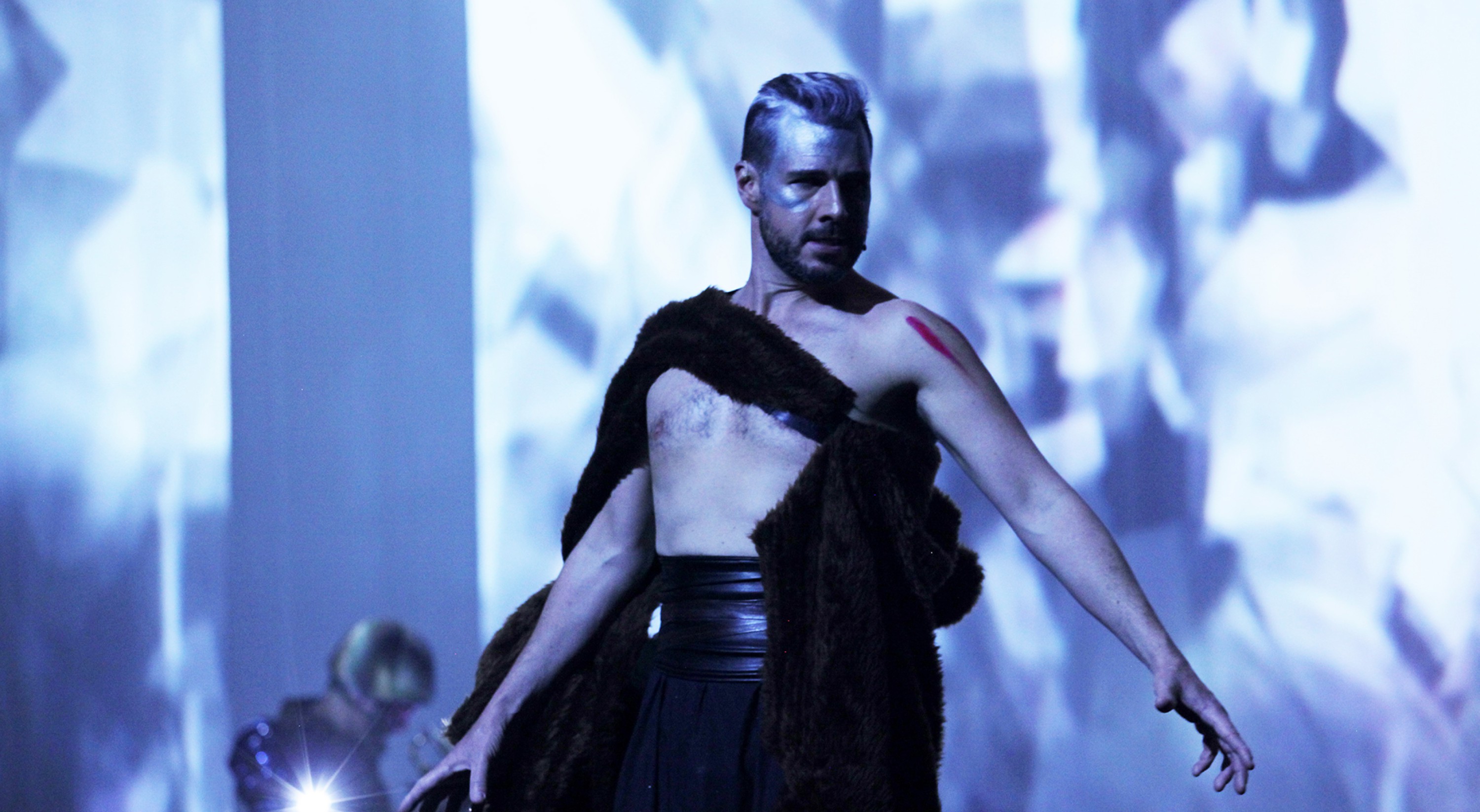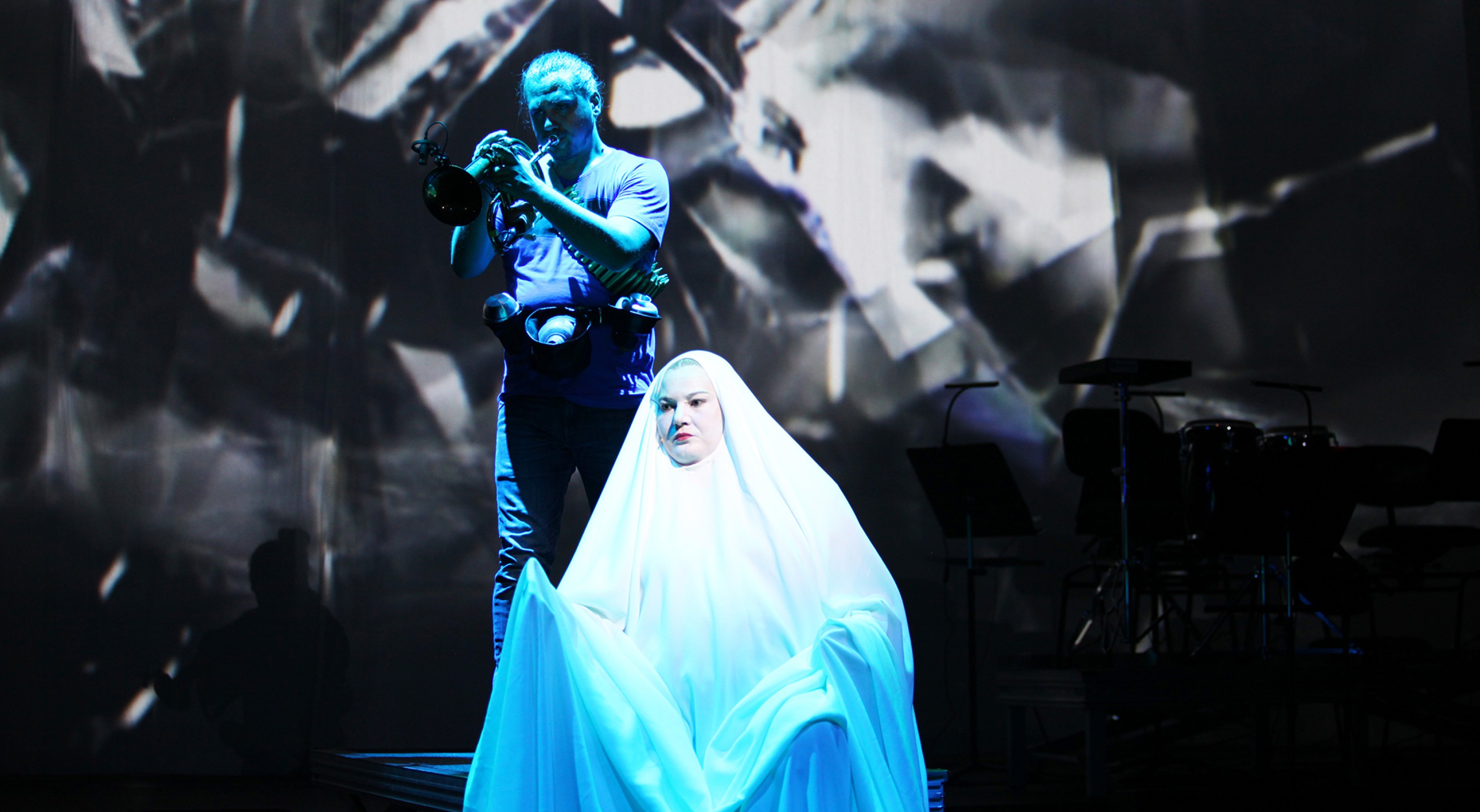Karlheinz Stockhausen
Dienstag aus Licht
octoberoct 24
Music, libretto and stage actions and movements, Karlheinz Stockhausen
Compagnie Le Balcon
Le jeune chœur de Paris
Conservatoire de Paris students
Conductor, Maxime Pascal
Élise Chauvin, Léa Trommenschlager – Eva; Damien Bigourdan – Michael; Damien Pass – Lucifer; Henri Deléger – Leader of Michael’s troops; Mathieu Adam – Leader of Lucifer’s troops; Sarah Kim – Synthi-fou
Performance designed by Maxime Pascal, Nieto, Damien Bigourdan
Stage direction, Damien Bigourdan
Stage design, Myrtille Debièvre
Visual design, Nieto
Sound projection, Florent Derex
Computer music, Augustin Muller
Costumes, Pascale Lavandier
Lighting, Catherine Verheyde
Coproduction: Le Balcon, Conservatoire national supérieur de musique et de danse de Paris, Philharmonie de Paris, Festival d’Automne à Paris With support from the Ernst von Siemens Foundation for Music
With support from La Muse en circuit – CNCM, La Fugue et la Fondation Singer-Polignac
With support from Adami
Musicians, actors and mime artists, choir, orchestra and recorded tapes, all join in celebration with Karlheinz Stockhausen in Dienstag aus Licht (Tuesday of Light), one day in the vast, fascinating cycle Licht. The Festival d’Automne has embarked on the venture of presenting the complete cycle over a period of years, in partnership with Maxime Pascal’s ensemble Le Balcon, and the Philharmonie de Paris. The guiding element of Tuesday is the earth with stone, rock, iron, chrome, red, ruby and garnet.
Stockhausen composed Licht from 1977 to 2003, creating a massive ritual of sound, prayer, movement, color, planets and gemstones, one of each for each day of the week. Tuesday, the shortest day of the cycle, opens with a Greeting invoking peace and freedom through God, is followed by two acts, and ends with a Farewell. Tuesday depicts spiritual, then physical conflict between two opposing principles as portrayed by the Archangel Michael, the warrior slaying the dragon (also personified by Mithras, Hermes, Thor, Saint George and Siegfried), and Lucifer, the advocate of multiple configurations, the negating spirit refusing any reconciliation of opposing forces. In the first act, initially written for a gagaku ensemble performing at the imperial court of Japan, and now performed by a modern western orchestra, Lucifer endeavors to suspend time through a rich symphony enumerating millennia, centuries, decades and years.
The second act of eleven scenes starts with Invasion. This first section was originally commissioned by the Festival d’Automne in 1987 for the 1989 program marking the bicentenary of the French Revolution, but the ensemble programmed to perform the work declined to do so. We have therefore had to wait thirty-three years to hear it as now presented in the 2020 festival. This second act sees Eve, the third of the forces in Licht, as the pietà, shedding tears over the mortally wounded Michael, the trumpet player. Contained within the war being waged, and which has been set on a cosmic scale, are elements from the composer’s own life, with the explosive sounds of random bomb blasts and anti-aircraft fire, and with searchlight beams in the night sky. Karlheinz Stockhausen who, by 1945, had lost both parents, had seen the reality of the tragedy on earth.
See also
In the same place




